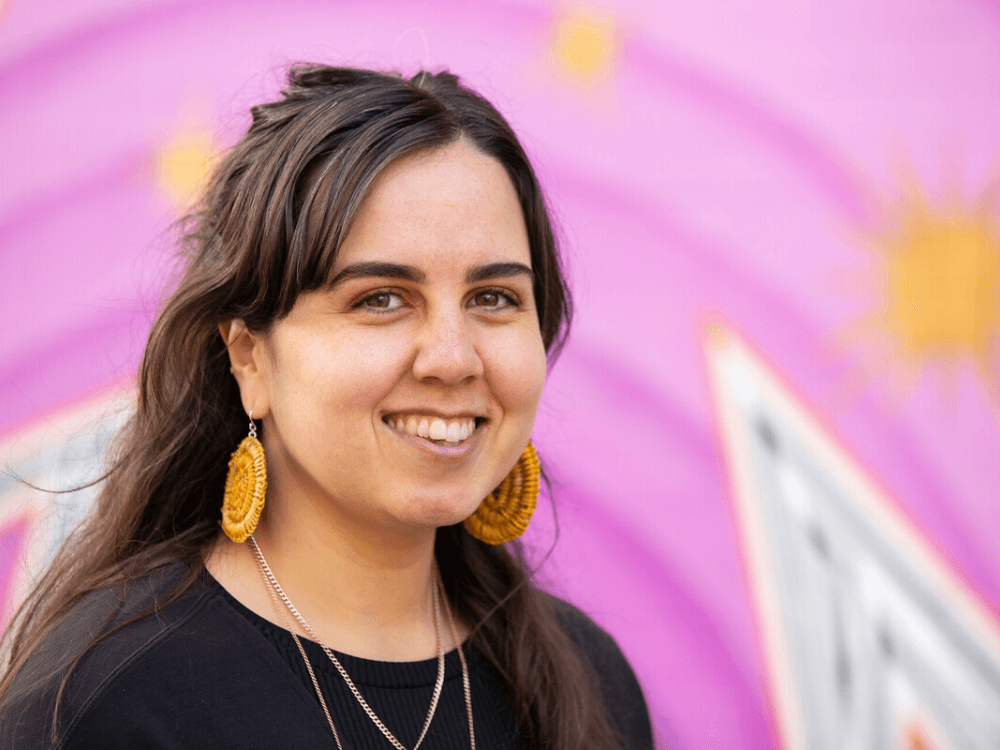
More than 50 Aboriginal and Torres Strait Islander women from across Australia gathered in Canberra in August for Oxfam’s annual Straight Talk summit. The summit teaches women about the federal political system, allows women to develop important networks and aims to empower them to engage in the political sphere, creating change in their communities. We sat down with one participant, Kimberley Hunter, to hear her views on civic participation.
Tell us a little about yourself.
My name is Kimberley Hunter. I’m a Nyikina woman from the west Kimberley region of Western Australia. I grew up in Kaurna Country in Adelaide and I also have strong family ties up in Larrakia Country, so I have a strong connection to all three of those places.
I’m an occupational therapist by background, but for the last, just over four years, I’ve been working at the Australian Human Rights Commission in the Aboriginal and Torres Strait Islander justice team. My work has focused largely on the Wiyi Yani U Thangani (Women’s Voices) project, which has been led by Commissioner June Oscar and looks at elevating the voices of First Nations women and girls right across the country.
What are you passionate about?
Looking at gender equality from a First Nations lens, elevating voices of First Nations across issues of social justice impacting our mob, and recognising the strengths of our women, as a backbone and front line of our communities.
What motivates you?
From a young age, surrounded by incredible leaders within my family and extended community who have really instilled that fight for social justice in our mob, and just building off of the work and pathways that they have created for me to follow in. That’s what gets me up in the morning, just continuing the fight that they have fought so hard for.
How has Straight Talk empowered you?
Firstly, being a program that invests in First Nations women is a strength in itself. And recognising the strength we carry as women in our communities and providing us with some of the tools that disrupt the systems and political institutions that weren’t made for us. Just giving us some of the tools to be change makers in our communities. I think for me personally, I’ve been working at the national level for a couple of years now, and some of the tools even just today have reminded me of some of the personal changes, and tips or tools, that I can use in my everyday life and share with my community. (It) just reinforces that all of us are change makers, no matter how big or small our contributions are, that they matter.
Find out more about the positive impact Straight Talk has had for its participants and the community here.